“I was 17 when I met my abuser. He was 9 years older and a pastor. We started out as friends, then he became a big brother figure to me, and once I finished college, we started dating. My parents, by the time they died, had been married for 60 years, and I had never seen abuse, so I didn’t know the signs; I didn’t see any red flags. When he called five times in a day, I just thought I was ‘that girl.’ I didn’t see it as the stalking and controlling behavior that it was. Victims don’t know they’re victims in the beginning.
“I began helping him raise his three children from a previous marriage, and we traveled all over the United States, him preaching and me singing gospel. He was very rich, and we always shopped in the best stores. He always told me we were the perfect couple and he would teach me how to be the perfect wife. He said (and I thought) that we worked well together, but slowly I began to realize that I was only allowed to do what he told me to do and that he bought me all these clothes because he was dressing me the way he wanted me to dress. I started to realize that he was taking over my life and that I was losing myself.
“Then the verbal abuse started, and the aggressive tone. I couldn’t even go to the bathroom without him demanding what took me so long. If he called me on the phone and I didn’t pick up quickly enough, he got very angry and wanted to know why I hadn't answered. He always apologized and said he didn’t mean it the way it sounded or he blamed it on having a bad day, but then it would happen again. That went on for several years, but I excused it. After all, he was a pastor and I was a young Christian girl; I thought he was my godsend.
“About six years into the relationship, he hit me for the first time. I had just gotten home from a church concert, and he accused me of being with someone else. Our unspoken arrangement was that I was never out of his sight for more than three hours, but that night I was late. I was so stunned when he accused me that I didn’t answer him right away, so he kicked me, slapped me, and tore off my clothes to see for himself whether or not I had been with someone else. I was shocked, angry, and ashamed all at the same time. That was also the first time he called me a bitch. That night he raped me.
“He apologized the next day and blamed his behavior on the fact that some friends had come by earlier in the evening and they’d gotten drunk and high together. I didn’t believe him at first because I was so afraid, but he did a lot of crying and apologizing. Finally, after a couple of weeks, things seemed back to normal. He told me, ‘You know the life of a pastor and preacher is stressful. I don’t mean to hurt you with my words.’ That was his favorite line.
“One of the ways he tried to make up for the abuse was to take me on trips or buy me expensive clothing and jewelry. Over the course of the 22 years we were together, that became the pattern: abuse followed by a lavish gift or a trip. I’ve been on hundreds of trips; I’ve gone anywhere I’ve ever wanted to go.
“There would sometimes be as long as a year between incidents, but I never knew when something would set him off. There was no warning. I might say the sky was blue, and he would disagree and fly into a rage. His drinking and drug use became more frequent, and he forced me to do things that were so sexually perverse that I can’t even talk about them. At one point, he forced me to have an abortion because he said that a pregnancy wouldn’t be good for our public testimony. Toward the end, I lived on eggshells, never knowing when he was going to explode.
“Whenever he abused me, I thought, ‘I’m not doing enough. I’m not nurturing enough. I’m not cooking enough. I’m not pretty enough.’ I blamed myself. I kept trying to change myself to please him, and I still loved him. That may be hard to understand, but keep in mind that I was a teenager when we met, and I loved him before he ever hurt me. I kept thinking, ‘I’ll do everything right, and he’ll treat me right. He’ll be better.’ I tried harder and harder to please him, but things just got worse. I thought something was wrong with me, not him. Everybody else thought he was great. In fact, his nickname was ‘Gentle Giant.’
“I left him ten different times, but I always went back. I always thought things would get better. And women are nurturers by nature. We nurture plants, children, sick neighbors, and our mates.
“Of course no one knew about the abuse. I had to keep it hidden. I was a gospel singer, and he was a pastor. Who could I tell? Isolation is one of the most powerful tools abusers use. They cut you off from family and friends and don’t allow you to have relationships they can’t control. My parents, especially my mother, suspected something, but she couldn’t put her finger on it. She’d ask me how I was doing, and I always said OK, so she assumed I was happy. She didn’t know anything until after I got out of the relationship. Toward the end, there were three friends I finally confided in, but they were the only ones who knew anything about what was going on.
“One Sunday morning I was at church listening to another pastor’s sermon. I don’t even know who or what he was talking about, but one line he said jumped out at me. It was: ‘Get me out of this, and get this out of me.’ That was a light bulb moment for me and became a prayer that I prayed for three years. I promised God that if I ever got out, I would never go back. Many people don’t realize that the most dangerous time in a victim’s life is not while she’s with her abuser. It’s when she tries to get out. I didn’t know how I was going to get away, and I actually got to the point where I had planned to kill him. I was afraid to stay with him, but I was afraid to leave because he might come after me.
“One Thursday evening I went up to the church to deliver a manuscript to him for his Bible study. My mother was in the hospital at the time, and I told him I was going to go by and visit her. He told me no, that I couldn’t go until he could go with me. When I told him I was going anyway, he slapped me. Right there in the pastor’s study in the church. I kicked him in the groin just as hard as I could and told him, ‘If you’ll slap me in the Lord’s house, you’ll kill me in your house.’ I left him right there, went home, and packed everything (including my dog). All the times before, I had sneaked out when he was asleep or not at home, but this time I waited for him. I had something to say, and I was going to say it.
“When he got home, I told him, ‘If you’re going to kill me, kill me now. I’m leaving you for good. Whatever is going to happen, let it happen now.’ He told me I couldn’t make it without him, that I was old and ugly and used up, and that he would blackball me in the church. None of the words we exchanged that day were in the Bible. When I drove away, I left everything behind: clothes, diamonds, minks, everything. I didn’t want anything of his. All I really wanted was a good night’s sleep. I didn’t know how sleep-deprived I was.
“That time, I didn’t go back. The hardest part was telling my dad. When I told him that we had fought, he heard ‘argument.’ He didn’t understand what I meant until he saw me doing a television interview. When he realized what had happened, he was livid. I had to call a family meeting to calm everybody down and say that I was OK. It hurt my dad so much that I hadn’t come to him and told him.
“I left the relationship when I was 44 years old. That’s been almost twelve years ago. At first, I was angry, but not at him. I was angry at myself for wasting all those years, but time spent in counseling helped me to forgive myself.
“I was determined to find a job helping other women. I worked at a counseling center for a while, then got a job here at the Family Safety Center just a few months after it opened in 2012. When I was coming out of the abuse, there wasn’t a place like this where everything could be accomplished under one roof. There are 40 different agencies with office space here and when a person comes in, he or she is assigned a ‘navigator’ to guide them through the many services available to them. All a person needs to do is come to 1750 Madison Ave, come up to the 6th floor, and tell us he or she needs help. All in this one building, a person can get help with filing a police report, consult with the DA staff, receive counseling and legal services, get help with mediation, file for victim compensation, get a referral to a shelter, and much more. Of course the Rape Crisis Center is here as well.
“Many times I thought I was going to die at the hands of my abuser. I have scars and permanent physical problems from the years of being hit, kicked and repeatedly strangled, but thank God I have gone from Victim to Survivor to Coach. I’m now in a position to help other women who are trying to get out of domestic violence situations. When I left my abuser for the last time, God gave me this Bible verse from Joel 2:25: ‘I will restore to you the years that the locust has eaten.’ And he has.
“If I could sum up my message in just a few words, I would say this one thing: 'Love Does Not Hurt.' It sounds like a cliché, I know, but it’s true: ”
“I began helping him raise his three children from a previous marriage, and we traveled all over the United States, him preaching and me singing gospel. He was very rich, and we always shopped in the best stores. He always told me we were the perfect couple and he would teach me how to be the perfect wife. He said (and I thought) that we worked well together, but slowly I began to realize that I was only allowed to do what he told me to do and that he bought me all these clothes because he was dressing me the way he wanted me to dress. I started to realize that he was taking over my life and that I was losing myself.
“Then the verbal abuse started, and the aggressive tone. I couldn’t even go to the bathroom without him demanding what took me so long. If he called me on the phone and I didn’t pick up quickly enough, he got very angry and wanted to know why I hadn't answered. He always apologized and said he didn’t mean it the way it sounded or he blamed it on having a bad day, but then it would happen again. That went on for several years, but I excused it. After all, he was a pastor and I was a young Christian girl; I thought he was my godsend.
“About six years into the relationship, he hit me for the first time. I had just gotten home from a church concert, and he accused me of being with someone else. Our unspoken arrangement was that I was never out of his sight for more than three hours, but that night I was late. I was so stunned when he accused me that I didn’t answer him right away, so he kicked me, slapped me, and tore off my clothes to see for himself whether or not I had been with someone else. I was shocked, angry, and ashamed all at the same time. That was also the first time he called me a bitch. That night he raped me.
“He apologized the next day and blamed his behavior on the fact that some friends had come by earlier in the evening and they’d gotten drunk and high together. I didn’t believe him at first because I was so afraid, but he did a lot of crying and apologizing. Finally, after a couple of weeks, things seemed back to normal. He told me, ‘You know the life of a pastor and preacher is stressful. I don’t mean to hurt you with my words.’ That was his favorite line.
“One of the ways he tried to make up for the abuse was to take me on trips or buy me expensive clothing and jewelry. Over the course of the 22 years we were together, that became the pattern: abuse followed by a lavish gift or a trip. I’ve been on hundreds of trips; I’ve gone anywhere I’ve ever wanted to go.
“There would sometimes be as long as a year between incidents, but I never knew when something would set him off. There was no warning. I might say the sky was blue, and he would disagree and fly into a rage. His drinking and drug use became more frequent, and he forced me to do things that were so sexually perverse that I can’t even talk about them. At one point, he forced me to have an abortion because he said that a pregnancy wouldn’t be good for our public testimony. Toward the end, I lived on eggshells, never knowing when he was going to explode.
“Whenever he abused me, I thought, ‘I’m not doing enough. I’m not nurturing enough. I’m not cooking enough. I’m not pretty enough.’ I blamed myself. I kept trying to change myself to please him, and I still loved him. That may be hard to understand, but keep in mind that I was a teenager when we met, and I loved him before he ever hurt me. I kept thinking, ‘I’ll do everything right, and he’ll treat me right. He’ll be better.’ I tried harder and harder to please him, but things just got worse. I thought something was wrong with me, not him. Everybody else thought he was great. In fact, his nickname was ‘Gentle Giant.’
“I left him ten different times, but I always went back. I always thought things would get better. And women are nurturers by nature. We nurture plants, children, sick neighbors, and our mates.
“Of course no one knew about the abuse. I had to keep it hidden. I was a gospel singer, and he was a pastor. Who could I tell? Isolation is one of the most powerful tools abusers use. They cut you off from family and friends and don’t allow you to have relationships they can’t control. My parents, especially my mother, suspected something, but she couldn’t put her finger on it. She’d ask me how I was doing, and I always said OK, so she assumed I was happy. She didn’t know anything until after I got out of the relationship. Toward the end, there were three friends I finally confided in, but they were the only ones who knew anything about what was going on.
“One Sunday morning I was at church listening to another pastor’s sermon. I don’t even know who or what he was talking about, but one line he said jumped out at me. It was: ‘Get me out of this, and get this out of me.’ That was a light bulb moment for me and became a prayer that I prayed for three years. I promised God that if I ever got out, I would never go back. Many people don’t realize that the most dangerous time in a victim’s life is not while she’s with her abuser. It’s when she tries to get out. I didn’t know how I was going to get away, and I actually got to the point where I had planned to kill him. I was afraid to stay with him, but I was afraid to leave because he might come after me.
“One Thursday evening I went up to the church to deliver a manuscript to him for his Bible study. My mother was in the hospital at the time, and I told him I was going to go by and visit her. He told me no, that I couldn’t go until he could go with me. When I told him I was going anyway, he slapped me. Right there in the pastor’s study in the church. I kicked him in the groin just as hard as I could and told him, ‘If you’ll slap me in the Lord’s house, you’ll kill me in your house.’ I left him right there, went home, and packed everything (including my dog). All the times before, I had sneaked out when he was asleep or not at home, but this time I waited for him. I had something to say, and I was going to say it.
“When he got home, I told him, ‘If you’re going to kill me, kill me now. I’m leaving you for good. Whatever is going to happen, let it happen now.’ He told me I couldn’t make it without him, that I was old and ugly and used up, and that he would blackball me in the church. None of the words we exchanged that day were in the Bible. When I drove away, I left everything behind: clothes, diamonds, minks, everything. I didn’t want anything of his. All I really wanted was a good night’s sleep. I didn’t know how sleep-deprived I was.
“That time, I didn’t go back. The hardest part was telling my dad. When I told him that we had fought, he heard ‘argument.’ He didn’t understand what I meant until he saw me doing a television interview. When he realized what had happened, he was livid. I had to call a family meeting to calm everybody down and say that I was OK. It hurt my dad so much that I hadn’t come to him and told him.
“I left the relationship when I was 44 years old. That’s been almost twelve years ago. At first, I was angry, but not at him. I was angry at myself for wasting all those years, but time spent in counseling helped me to forgive myself.
“I was determined to find a job helping other women. I worked at a counseling center for a while, then got a job here at the Family Safety Center just a few months after it opened in 2012. When I was coming out of the abuse, there wasn’t a place like this where everything could be accomplished under one roof. There are 40 different agencies with office space here and when a person comes in, he or she is assigned a ‘navigator’ to guide them through the many services available to them. All a person needs to do is come to 1750 Madison Ave, come up to the 6th floor, and tell us he or she needs help. All in this one building, a person can get help with filing a police report, consult with the DA staff, receive counseling and legal services, get help with mediation, file for victim compensation, get a referral to a shelter, and much more. Of course the Rape Crisis Center is here as well.
“Many times I thought I was going to die at the hands of my abuser. I have scars and permanent physical problems from the years of being hit, kicked and repeatedly strangled, but thank God I have gone from Victim to Survivor to Coach. I’m now in a position to help other women who are trying to get out of domestic violence situations. When I left my abuser for the last time, God gave me this Bible verse from Joel 2:25: ‘I will restore to you the years that the locust has eaten.’ And he has.
“If I could sum up my message in just a few words, I would say this one thing: 'Love Does Not Hurt.' It sounds like a cliché, I know, but it’s true: ”
Gwen Turner of the Family Safety Center is available to speak to civic clubs, youth groups, churches, or to any individual who needs help escaping domestic abuse situation. She can be contacted at ---
Family Safety Center
1750 Madison Ave.
Suite 600 (6th floor)
Memphis, TN 38104
Phone 901-222-4400 (24-hour crisis hotline)
Office Hours: M-F 8:00AM - 4:30PM
-----
Exchange Club of Memphis
Ph. 901-276-2200 (24-hour crisis hotline)
-----
NOTE: I was recently contacted by a representative of the General Federation of Women's Clubs whose current focus is the issue of domestic violence. Some women may be interested in finding out more about the club's community service work and how they can participate through membership in the organization. Although the following is not an official endorsement by Connecting Memphis, it is provided for your information:
The General Federation of Women’s Clubs is an international women’s organization dedicated to community improvement by enhancing the lives of others through volunteer service. Domestic Violence Awareness and Prevention is their signature project. By supporting existing activities, working with various established programs, and initiating educational opportunities for club members and local citizens, the goal of the GFWC Signature Project: Domestic Violence Awareness and Prevention is to increase awareness and prevention of the widespread occurrence of domestic abuse in communities across the nation. The GFWC is starting a new club in the Memphis area called the GFWC Poplar Avenue Woman's Club. Women of all ages and interests are invited to participate. Information can be obtained by contacting Linda Hershey, [email protected]. In addition to Domestic Violence issues, the GFWC works on projects in the Arts, Conservation, Education, Home Life, International Outreach, and Public Issues.
- Email: [email protected]
- Phone: 901-222-4400 (24-hour crisis hotline)
Family Safety Center
1750 Madison Ave.
Suite 600 (6th floor)
Memphis, TN 38104
Phone 901-222-4400 (24-hour crisis hotline)
Office Hours: M-F 8:00AM - 4:30PM
-----
Exchange Club of Memphis
Ph. 901-276-2200 (24-hour crisis hotline)
-----
NOTE: I was recently contacted by a representative of the General Federation of Women's Clubs whose current focus is the issue of domestic violence. Some women may be interested in finding out more about the club's community service work and how they can participate through membership in the organization. Although the following is not an official endorsement by Connecting Memphis, it is provided for your information:
The General Federation of Women’s Clubs is an international women’s organization dedicated to community improvement by enhancing the lives of others through volunteer service. Domestic Violence Awareness and Prevention is their signature project. By supporting existing activities, working with various established programs, and initiating educational opportunities for club members and local citizens, the goal of the GFWC Signature Project: Domestic Violence Awareness and Prevention is to increase awareness and prevention of the widespread occurrence of domestic abuse in communities across the nation. The GFWC is starting a new club in the Memphis area called the GFWC Poplar Avenue Woman's Club. Women of all ages and interests are invited to participate. Information can be obtained by contacting Linda Hershey, [email protected]. In addition to Domestic Violence issues, the GFWC works on projects in the Arts, Conservation, Education, Home Life, International Outreach, and Public Issues.
On display at the Family Safety Center:
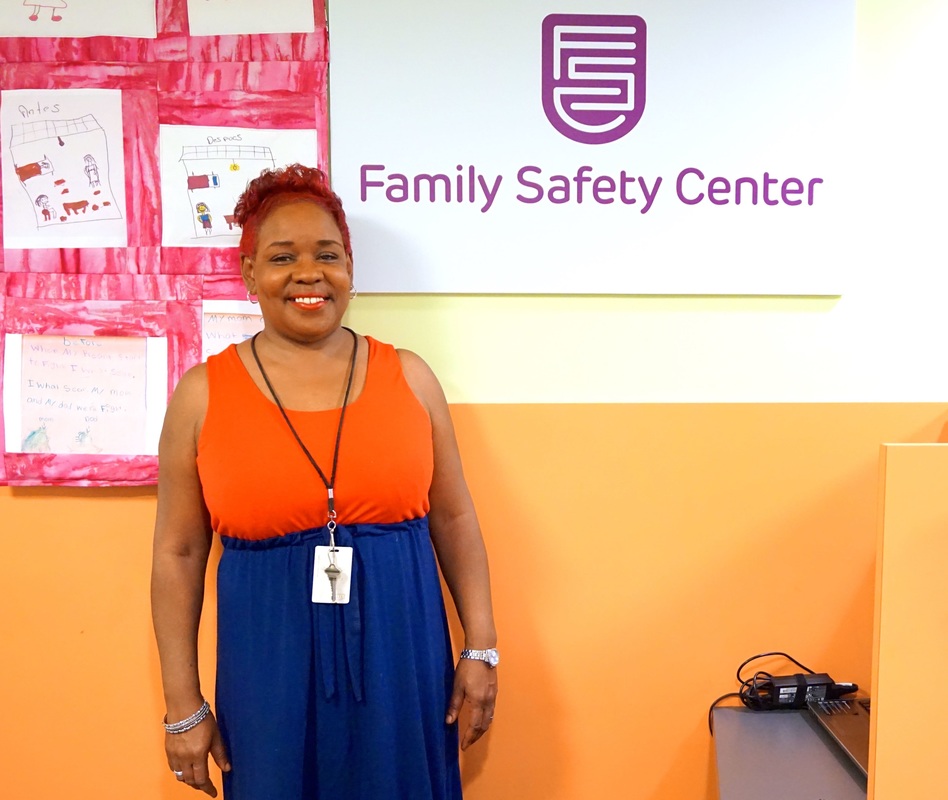
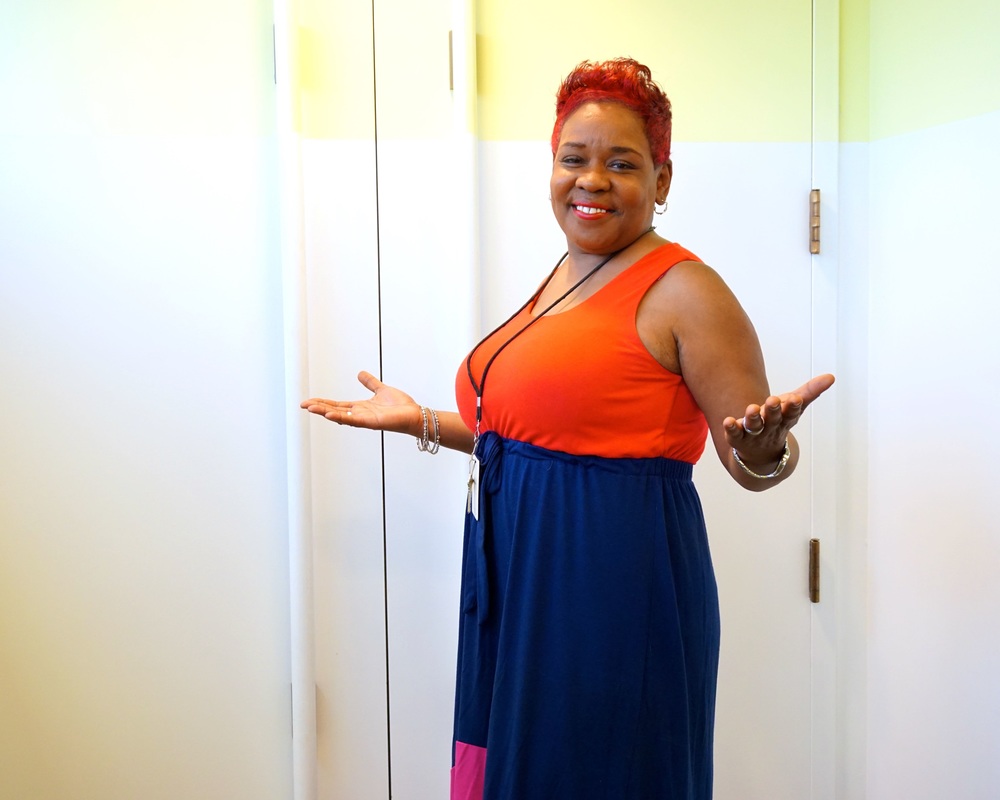
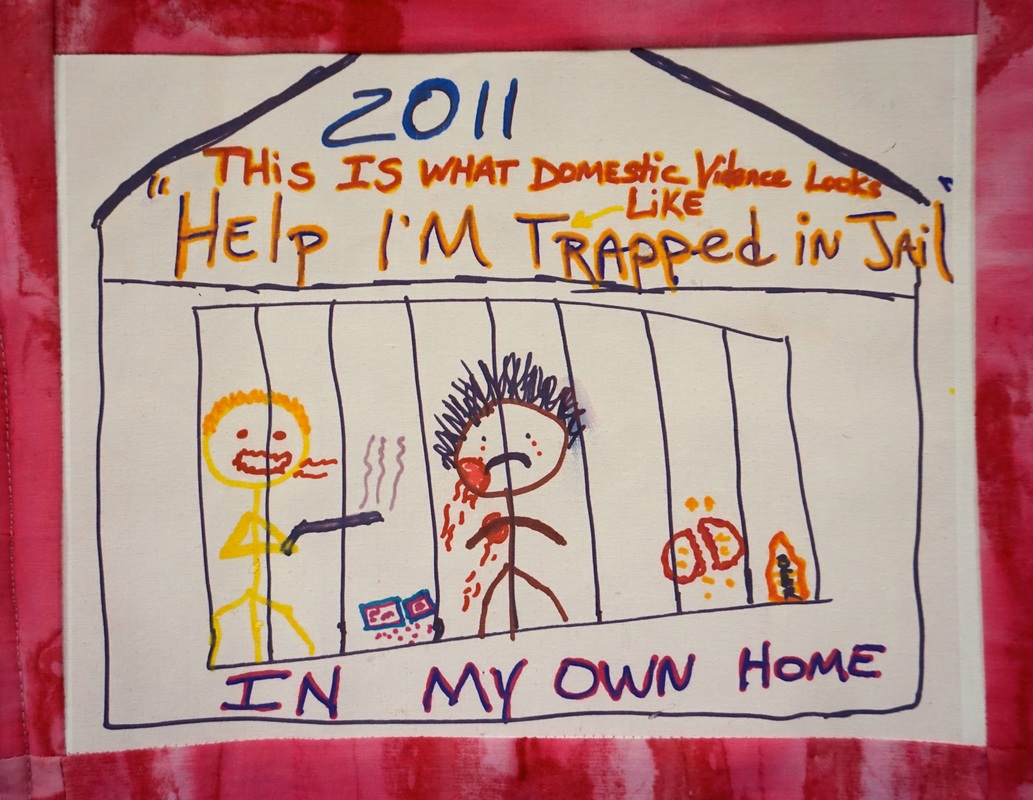
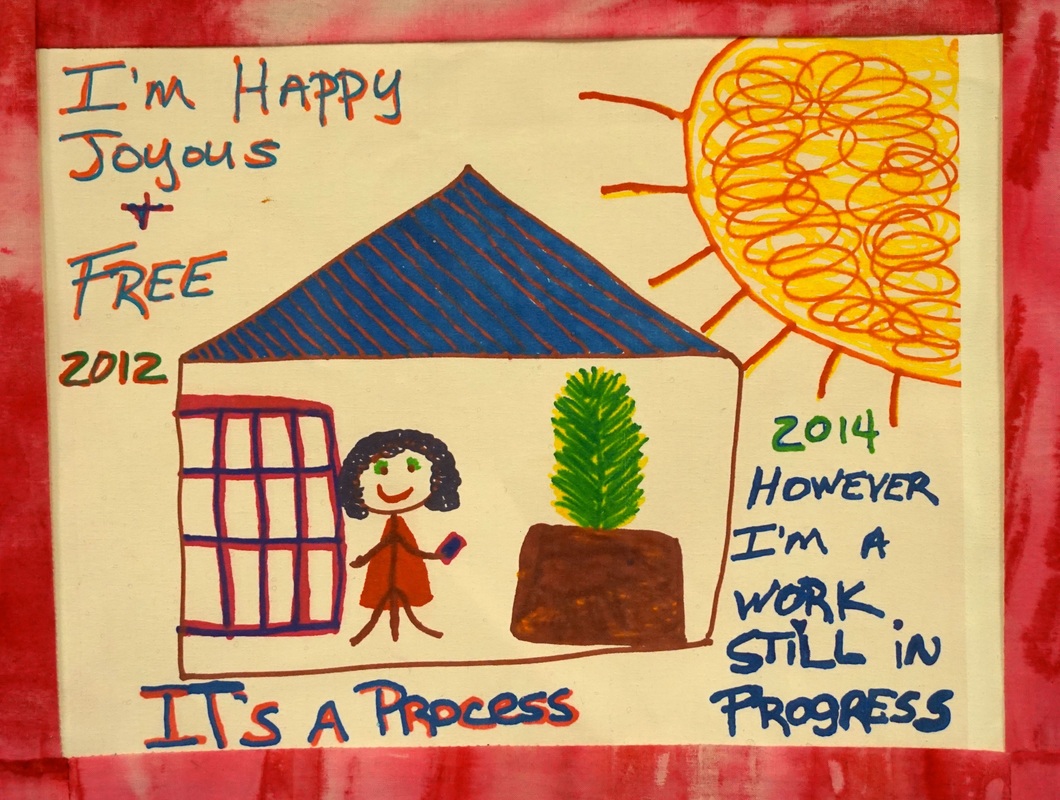
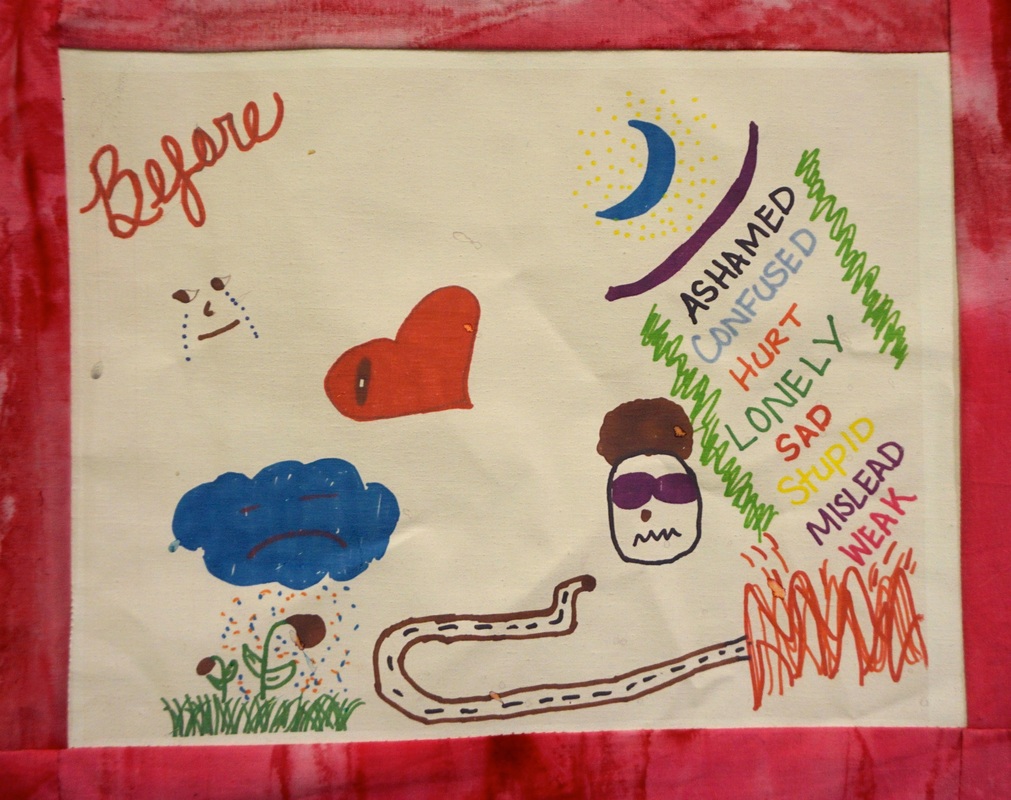
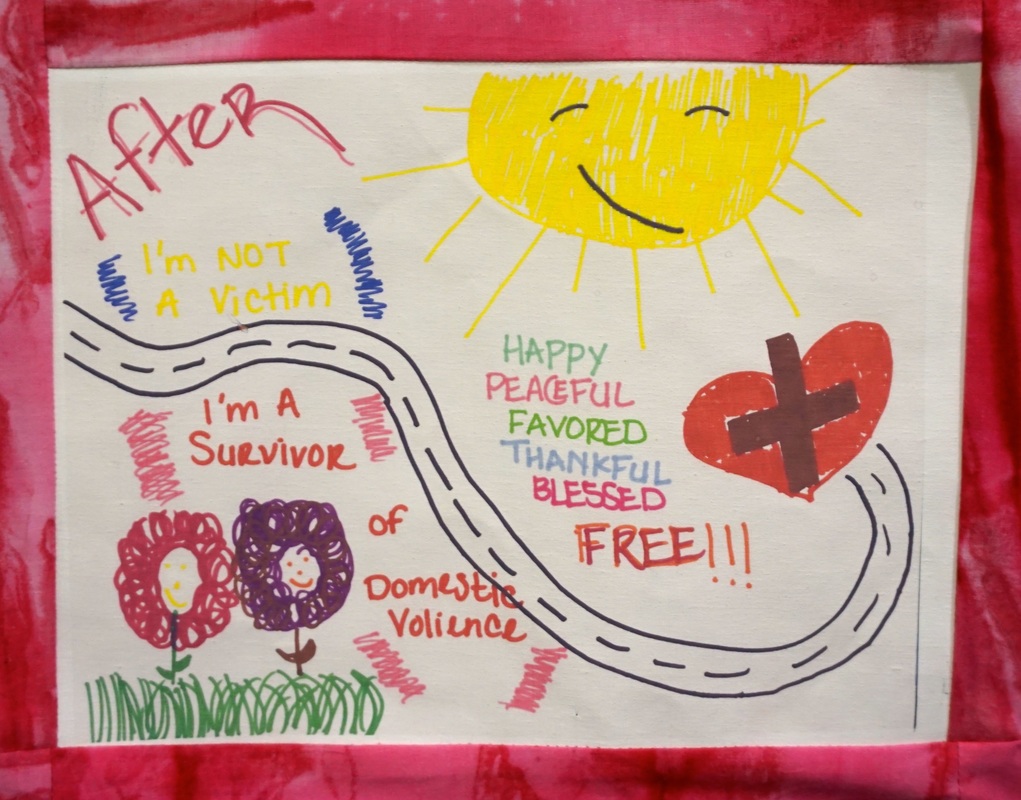
 RSS Feed
RSS Feed